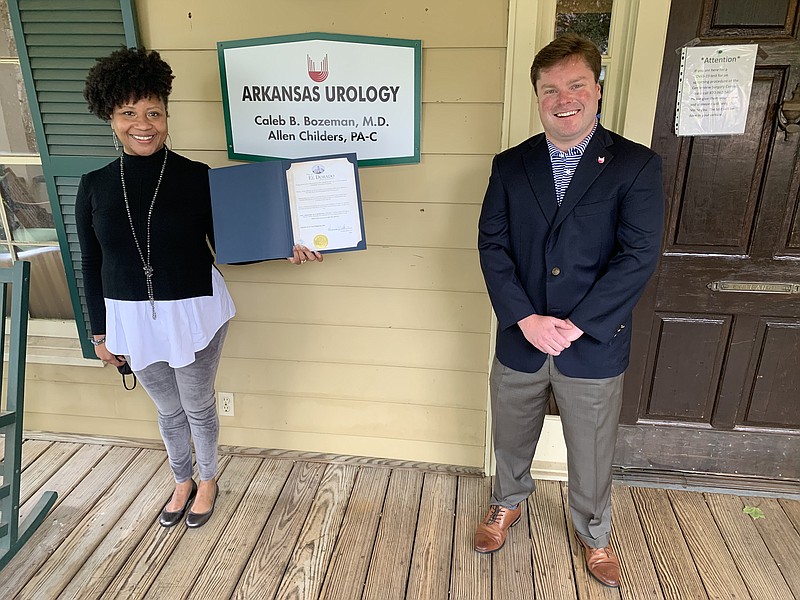Prostate cancer is, according to the American Association for Cancer Research, the most diagnosed non-skin cancer in men and the second leading cause of cancer deaths in men, behind only lung cancer.
Multiple effective screening methods are available for prostate cancer and survival rates are good because the disease is often caught before it spreads, according to the AACR. This means that the most effective weapon in the fight against it is awareness.
The American Cancer Society recommends that men with an average risk of prostate cancer should discuss the need to receive a screening as early as age 50. Those with a higher risk, including African-American men and those with at least one first-degree relative who was diagnosed with prostate cancer at an early age, should look to have this discussion by age 45. Those at the highest risk, defined as those with more than one first-degree relative who was diagnosed at an early age, should look to potentially begin screenings at age 40.
September is National Prostate Cancer Awareness Month and Arkansas Urology has been helping to spread knowledge about the disease. Monday, the clinic began its Kick Off to Men’s Health event with free prostate screenings at its location in El Dorado.
“Prostate cancer affects so many Arkansans and early detection is key. We’re happy so many men from Union County attended our Kickoff to Men’s Health event to get screened,” said Chris Shenep, director of the Arkansas Urology Foundation.
Earlier Monday, El Dorado Mayor Veronica Smith-Creer visited the Arkansas Urology clinic to officially proclaim September Prostate Cancer Awareness Month.
The proclamation states in part that “awareness, early detection and increased access to health care providers are essential to preventing and treating prostate cancer.”
“We all have amazing, important men in our lives, so we want to make sure to take advantage of the free screenings [Monday] evening,” Smith-Creer said during the proclamation reading.
Arkansas Urology will hold more free screenings at its North Little Rock location on September 24 and its Bentonville location on September 28.
Camden native James Pace, an Arkansas Urology patient and prostate cancer survivor, said awareness of the disease is crucial.
“Awareness is very important, because the sooner you know, the sooner you can get something done. You don’t need to keep waiting even if it is a slow cancer. I knew something was wrong but didn’t know what,” Pace said.
Pace was diagnosed in 2012. He had noticed that he was going to the bathroom more frequently, the sole sign at first.
“I thought it was just because I was getting older,” Pace said.
Then, Pace noticed blood in his urine one morning. He arrived at work later the same day and was told that, rather than the employee’s usual physical screening in Camden, they would be visiting a doctor in El Dorado that very day.
Pace, surely still disturbed from his experience that morning, took it as sign.
“I said, ‘Lord, hopefully whatever is going on [this doctor] will help me find it out,’” Pace said.
Sure enough, Pace’s urine sample was abnormal. He next went on referral to his primary care physician, who referred him to a urologist.
Pace visited the urologist several times, visits that culminated in a biopsy and MRI. He was then diagnosed with prostate cancer and told that he needed surgery.
Speaking with his surgeon, Dr. Timothy Langford, before the surgery, Pace learned that the process would begin at 9 a.m. and likely end around noon.
He also gave permission for his prostate to be removed if necessary.
With this information in mind, Pace was somewhat confused when he woke up at 3:25 p.m.
“I was wondering why I was waking up [that late], so I asked my son. He told me that my prostate was large, much larger than they thought it was, so the surgery took longer,” Pace said.
Following the surgery, Pace spent the next months visiting his urologist, receiving various radiation treatments and juggling a host of medications. Now, eight years later, he still visits several times a year for blood work and urine tests.
Pace said that he encourages anyone at risk to get prostate screenings.
“I do recommend to go get a prostate screening. [The doctors] told me that a prostate is supposed to be the size of a walnut and mine was two-or-three times bigger,” Pace said.
